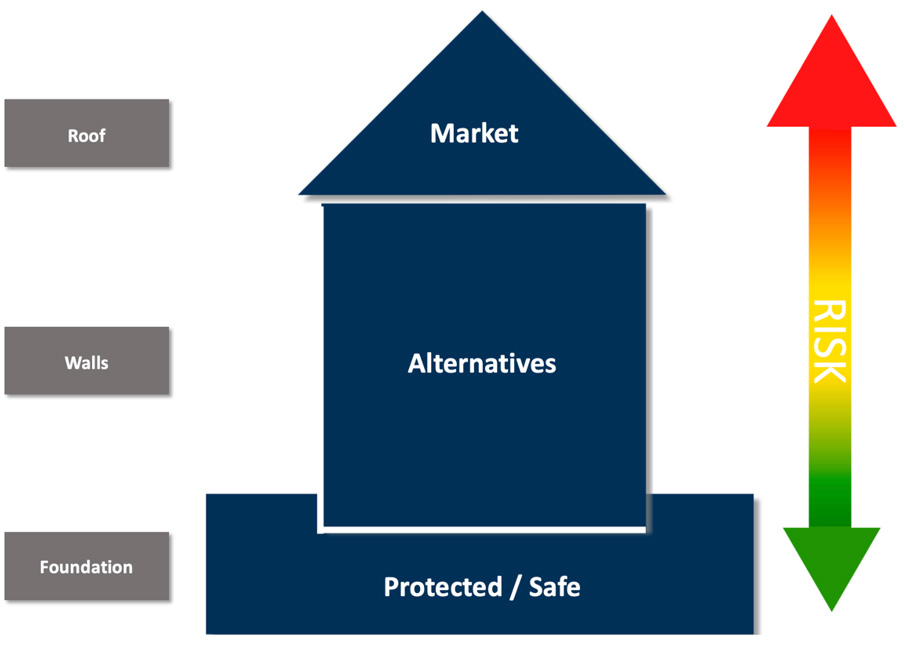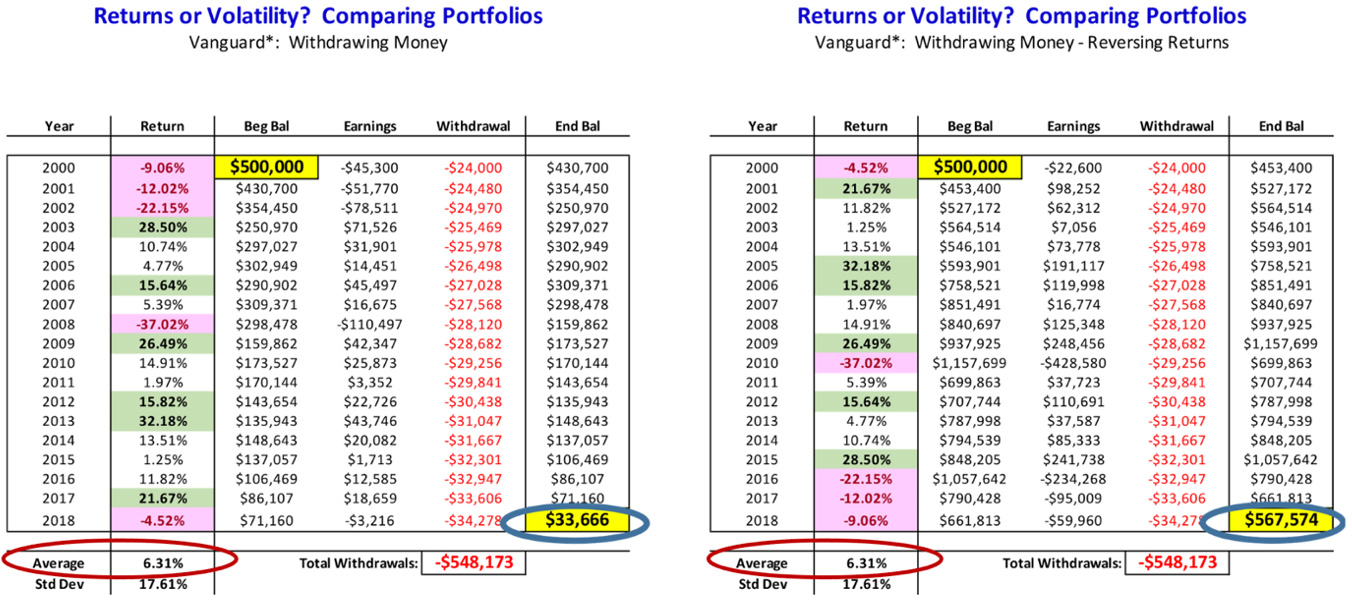Avoid These 4 Common but COSTLY Retirement Income Mistakes
There are no pay stubs in retirement and no accounting departments to answer your questions. Once you retire, you need to be prepared to generate income and use it to pay your bills in a money-savvy manner.


Profit and prosper with the best of Kiplinger's advice on investing, taxes, retirement, personal finance and much more. Delivered daily. Enter your email in the box and click Sign Me Up.
You are now subscribed
Your newsletter sign-up was successful
Want to add more newsletters?

Delivered daily
Kiplinger Today
Profit and prosper with the best of Kiplinger's advice on investing, taxes, retirement, personal finance and much more delivered daily. Smart money moves start here.

Sent five days a week
Kiplinger A Step Ahead
Get practical help to make better financial decisions in your everyday life, from spending to savings on top deals.

Delivered daily
Kiplinger Closing Bell
Get today's biggest financial and investing headlines delivered to your inbox every day the U.S. stock market is open.

Sent twice a week
Kiplinger Adviser Intel
Financial pros across the country share best practices and fresh tactics to preserve and grow your wealth.

Delivered weekly
Kiplinger Tax Tips
Trim your federal and state tax bills with practical tax-planning and tax-cutting strategies.

Sent twice a week
Kiplinger Retirement Tips
Your twice-a-week guide to planning and enjoying a financially secure and richly rewarding retirement

Sent bimonthly.
Kiplinger Adviser Angle
Insights for advisers, wealth managers and other financial professionals.

Sent twice a week
Kiplinger Investing Weekly
Your twice-a-week roundup of promising stocks, funds, companies and industries you should consider, ones you should avoid, and why.

Sent weekly for six weeks
Kiplinger Invest for Retirement
Your step-by-step six-part series on how to invest for retirement, from devising a successful strategy to exactly which investments to choose.
As you near retirement, it becomes clear the responsibility for most aspects of your financial life will fall squarely on your own shoulders. The paychecks you earned will now be replaced by the paychecks you create. For most, those paychecks will need to last for years and cover various expenses throughout our retirement.
Unfortunately, the mistakes you make with your retirement income can have devastating consequences for even the best laid plans.
Consider these four common mistakes to avoid:
From just $107.88 $24.99 for Kiplinger Personal Finance
Become a smarter, better informed investor. Subscribe from just $107.88 $24.99, plus get up to 4 Special Issues

Sign up for Kiplinger’s Free Newsletters
Profit and prosper with the best of expert advice on investing, taxes, retirement, personal finance and more - straight to your e-mail.
Profit and prosper with the best of expert advice - straight to your e-mail.
Mistake #1: Not Having a Budget Specific to Retirement
This may seem obvious, however, it’s probably much more common than you realize. When teaching retirement courses, I ask our students how many have formalized budgets as their guide to track monthly expenses. I’m always shocked by how few actually have anything more than a budget “in their head.”
Many of those who do have something in place did not make the appropriate adjustments for retirement. Using old assumptions like “you will only need 80%” of your pre-retirement income can be dangerous, especially if you plan to be more active in those early years. Take time to understand what your fixed monthly expenses will be once you retire, along with your anticipated discretionary spending for things like travel, leisure or just spoiling the grandkids.
Without a clear budget, how will you (or your financial adviser) be able to make some of the most important retirement decisions you face, such as when to begin taking Social Security benefits, choosing the right pension elections or determining what mix of investments, insurance or banking products are appropriate for you? The answer is you CAN’T.
Mistake #2: Not Having a Written Income Plan
A written income plan is a MUST. Similar to a budget, most people never have an actual income plan during their working years because their paycheck was their income plan. Earning money and accumulating wealth is often the primary focus throughout our careers. In retirement, the responsibility now falls on you to create your own monthly paycheck from your basket of resources, including Social Security benefits, pensions, CDs, investments, annuities, etc.
A well-designed written plan should bring clarity as to when, how much and from which sources income is needed to cover fixed expenses and discretionary spending. It should also identify what percentage of your fixed monthly expenses will be covered by fixed sources of income, such as Social Security and pension, sometimes referred to as your Income Security Score. The goal should be to get this score as close to 100% as possible to avoid your monthly income being dependent on market performance.
Just like a retirement budget, a written income plan will help you make better decisions about the timing of taking retirement benefits and best combination of investments and insurance products to fill in any gaps or shortfalls.
Mistake #3: Co-Mingling Your Money
The idea of separating your money based on its purpose works in concert with creating a written income plan (see above). As your written plan begins to take form, you should be able to identify gaps, such as the amount of your monthly expenses that are not covered by fixed sources of income, such as Social Security and pensions. Combined with your other retirement needs and desires, you can now begin to allocate your resources appropriately based on purpose.
The visual of a house can demonstrate this concept:

In this example, there are three areas with different purposes, typical to many retirees.
- The foundation represents safety and would include things such as your Social Security benefits, pensions, CDs and annuities. It’s from this segment you should create your monthly income.
- The walls of the house could be dedicated to things such as health care and inflation and could include using tools like alternative investments, real estate or life insurance.
- The roof represents the growth piece of retirement and may be dedicated to market-based investments, such as stocks, mutual funds or ETFs.
REALIZE that how much is allocated to each section is completely different for everyone. For example, retirees whose benefits include multiple sources of fixed income may dedicate more of their money to risk-based solutions, compared with someone whose only source of guaranteed income may be from monthly Social Security. A lack of guaranteed* monthly income may require more to be allocated to different tools such as CDs or annuities. There is never a one-size-fits-all solution.
Mistake #4: Taking Regular Distributions from Fluctuating Accounts
This is probably the most dangerous thing a retiree can do when creating monthly income, because they are now at the mercy of the returns in the market and something called sequence of returns risk. This is all about the order in which the market returns hit your portfolio once you retire. It’s random and unpredictable and can have devasting consequences if left to chance, as this example** shows.

These two portfolios are exactly the same except the order of actual market returns was reversed in the second example. It’s here that you can see the importance of separating your money by purpose to avoid relying on recurring distributions from something so random. This is certainly one of the biggest risks many retirees will face during their retirement but often one of the areas most often left to chance.
Avoid these common mistakes to enjoy all that your retirement can offer!
*Annuity guarantees are backed by the financial strength and claims paying ability of the issuing insurance company. Financial products and services if recommended may include investment advisory fees, commissions and/or other charges.
**This sample portfolio illustration is hypothetical only. It is not intended to represent any particular investment or performance. The above spreadsheet is for illustrative purposes only and does not represent any specific investment recommendation. Investing involves risk and loss of principal. Past performance is no guarantee of future results.
Investment Advisory Services offered through Trek Financial, LLC, (Trek) an SEC Registered Investment Adviser. Information presented is for educational purposes only. It should not be considered specific investment advice, does not take into consideration your specific situation, and does not intend to make an offer or solicitation for the sale or purchase of any securities or investment strategies. Investments involve risk and are not guaranteed, and past performance is no guarantee of future results. For specific tax advice on any strategy, consult with a qualified tax professional before implementing any strategy discussed herein. Trek 21-115.
Profit and prosper with the best of Kiplinger's advice on investing, taxes, retirement, personal finance and much more. Delivered daily. Enter your email in the box and click Sign Me Up.

Nicholas Toman, CFP®, is a lead retirement planner and investment adviser with Empowered Financial Management, a firm that specializes in retirement planning for those individuals within five to seven years of retirement or who have recently retired and no longer wish to serve as their own financial adviser. Nicholas is a graduate of the University of Wisconsin-Whitewater with a BBA in accounting and has been a Certified Financial Planner since 2014.
-
 Nasdaq Leads a Rocky Risk-On Rally: Stock Market Today
Nasdaq Leads a Rocky Risk-On Rally: Stock Market TodayAnother worrying bout of late-session weakness couldn't take down the main equity indexes on Wednesday.
-
 Quiz: Do You Know How to Avoid the "Medigap Trap?"
Quiz: Do You Know How to Avoid the "Medigap Trap?"Quiz Test your basic knowledge of the "Medigap Trap" in our quick quiz.
-
 5 Top Tax-Efficient Mutual Funds for Smarter Investing
5 Top Tax-Efficient Mutual Funds for Smarter InvestingMutual funds are many things, but "tax-friendly" usually isn't one of them. These are the exceptions.
-
 Social Security Break-Even Math Is Helpful, But Don't Let It Dictate When You'll File
Social Security Break-Even Math Is Helpful, But Don't Let It Dictate When You'll FileYour Social Security break-even age tells you how long you'd need to live for delaying to pay off, but shouldn't be the sole basis for deciding when to claim.
-
 I'm an Opportunity Zone Pro: This Is How to Deliver Roth-Like Tax-Free Growth (Without Contribution Limits)
I'm an Opportunity Zone Pro: This Is How to Deliver Roth-Like Tax-Free Growth (Without Contribution Limits)Investors who combine Roth IRAs, the gold standard of tax-free savings, with qualified opportunity funds could enjoy decades of tax-free growth.
-
 One of the Most Powerful Wealth-Building Moves a Woman Can Make: A Midcareer Pivot
One of the Most Powerful Wealth-Building Moves a Woman Can Make: A Midcareer PivotIf it feels like you can't sustain what you're doing for the next 20 years, it's time for an honest look at what's draining you and what energizes you.
-
 I'm a Wealth Adviser Obsessed With Mahjong: Here Are 8 Ways It Can Teach Us How to Manage Our Money
I'm a Wealth Adviser Obsessed With Mahjong: Here Are 8 Ways It Can Teach Us How to Manage Our MoneyThis increasingly popular Chinese game can teach us not only how to help manage our money but also how important it is to connect with other people.
-
 Looking for a Financial Book That Won't Put Your Young Adult to Sleep? This One Makes 'Cents'
Looking for a Financial Book That Won't Put Your Young Adult to Sleep? This One Makes 'Cents'"Wealth Your Way" by Cosmo DeStefano offers a highly accessible guide for young adults and their parents on building wealth through simple, consistent habits.
-
 Global Uncertainty Has Investors Running Scared: This Is How Advisers Can Reassure Them
Global Uncertainty Has Investors Running Scared: This Is How Advisers Can Reassure ThemHow can advisers reassure clients nervous about their plans in an increasingly complex and rapidly changing world? This conversational framework provides the key.
-
 I'm a Real Estate Investing Pro: This Is How to Use 1031 Exchanges to Scale Up Your Real Estate Empire
I'm a Real Estate Investing Pro: This Is How to Use 1031 Exchanges to Scale Up Your Real Estate EmpireSmall rental properties can be excellent investments, but you can use 1031 exchanges to transition to commercial real estate for bigger wealth-building.
-
 Should You Jump on the Roth Conversion Bandwagon? A Financial Adviser Weighs In
Should You Jump on the Roth Conversion Bandwagon? A Financial Adviser Weighs InRoth conversions are all the rage, but what works well for one household can cause financial strain for another. This is what you should consider before moving ahead.